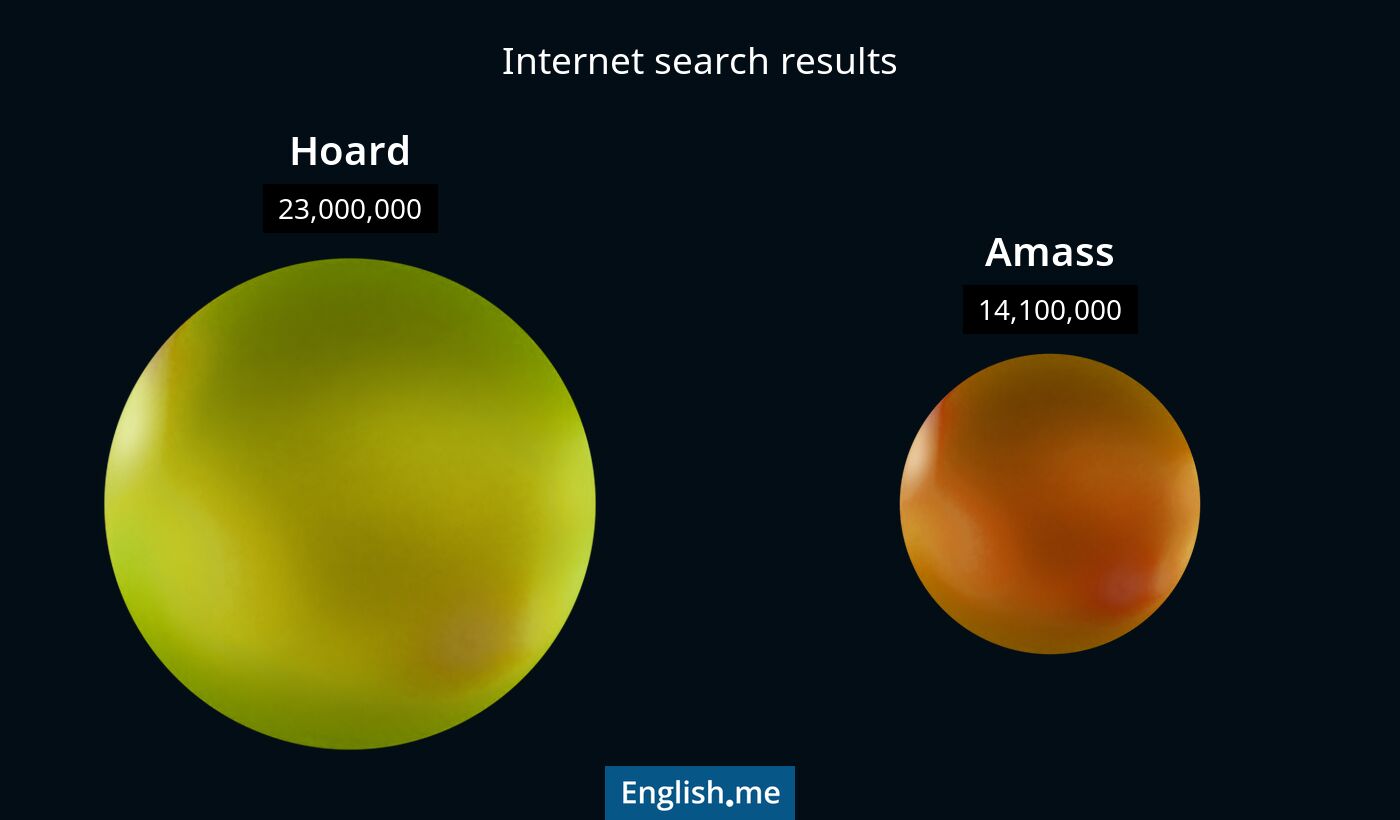Stacking up: "hoard" vs. "amass"
Reviewed and edited by  Lloyd Cooper 25/01/2025, 08:18
Lloyd Cooper 25/01/2025, 08:18
English.me team member

 What is similar?
What is similar?
Both "hoard" and "amass" refer to the act of accumulating or gathering a large quantity of something over time.
 What is different?
What is different?
"Hoard" often carries a negative connotation, implying secretive or excessive accumulation, sometimes to the detriment of others. It suggests keeping items hidden and not sharing them. "Amass" is more neutral, simply indicating the gathering or collecting of items or information without the implication of secrecy or selfishness.
 Which one is more common?
Which one is more common?

 Examples of usage
Examples of usage
Hoard- During the shortage, some people began to hoard essential supplies.
- The squirrels hoard nuts to prepare for winter.
- He has a tendency to hoard old newspapers and magazines.
- She managed to amass a considerable fortune before retiring.
- Over the years, they've amassed a vast collection of art.
- The researcher aimed to amass data from various sources.

 English
English español
español française
française italiano
italiano deutsche
deutsche 日本語
日本語 polski
polski česky
česky svenska
svenska Türkçe
Türkçe Nederlands
Nederlands